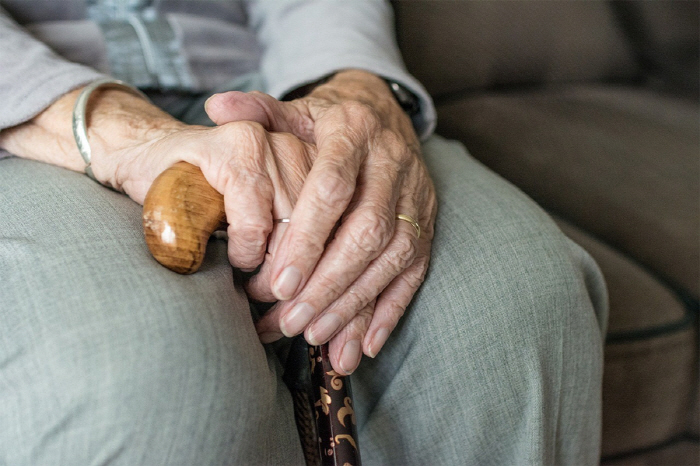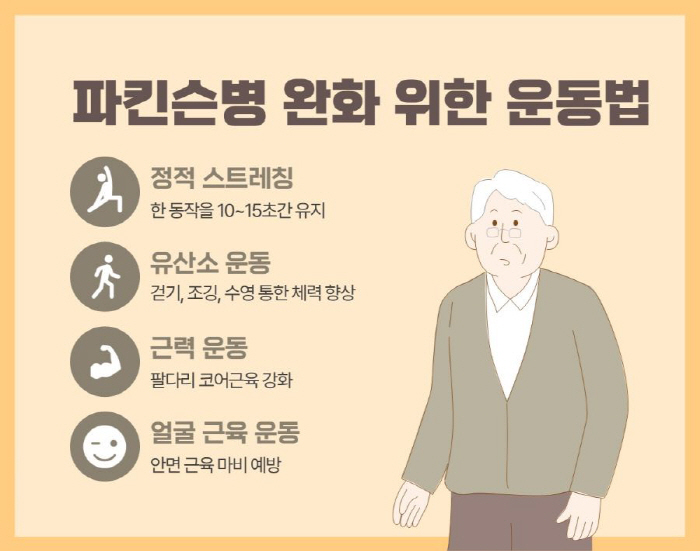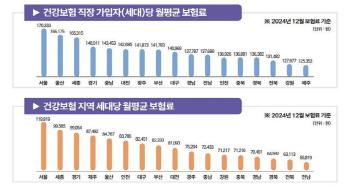I'm speechless, the size of my handwriting gets smaller, and is Parkinson's disease by any chance?Initial management of Himchan Hospital is important
Apr 11, 2025
|
According to data from the Health Insurance Review and Assessment Service, the number of Parkinson's disease patients increased by about 49% over the past decade from 84,333 in 2014 to 125,526 in 2023.
As of 2023, there were 116,723 elderly patients over the age of 65, accounting for about 93% of all patients, and there were 71,055 female patients by gender, slightly more than male patients.
Park Jung-hoon, director of the Department of Neurology at Incheon Himchan General Hospital, said "Parkinson's disease is a disease that is difficult to detect because the disease gradually progresses, and the initial symptoms are diverse and widespread."The number of patients in Korea is expected to surge further as we have entered an ultra-aging society"
◇ Unknown cause, difficult to diagnose due to various symptoms
Parkinson's disease is also called idiopathic Parkinson's disease because the cause of the disease is not clear. It occurs mainly in people over the age of 60, and the incidence is higher as the age increases, and about 2% of the population over the age of 70 is known to be Parkinson's disease. Aging is presumed to be the main cause of the outbreak, and environmental factors, toxic substances, genetic factors, mitochondrial dysfunction, and abnormal protein processing dysfunction are also considered causes.
Initially, it is easy to overlook due to symptoms that are common in the elderly, such as forgetfulness, sleep disorders, and urination disorders. Suddenly, you should suspect Parkinson's disease if your voice becomes small or your pronunciation is unclear, your letters become smaller when you write, if you don't shake your arms or feel like you're dragging your legs when you're walking, and if you're not good at smelling and drooling often.
In particular, the tremors of hands and feet are severe when they are still, and the tremors are alleviated or disappeared when they move.
The most obvious symptoms of Parkinson's disease are slow motion, tremors at rest, and muscle stiffness. Mainly motor disorders such as dragging one leg or short stride when walking, symptoms of stumbling or falling while walking or standing, and stiffening of expressions appear. In addition, loss of nerve cells that move the internal organs can be accompanied by urination disorders, sleep disorders, anxiety, depression, and helplessness. Symptoms may worsen depending on changes in temperature, air pressure, and humidity, and symptoms may worsen in winter when vitamin D decreases due to reduced dopamine production.
◇ It should be managed with constant treatment and exercise
Parkinson's disease has no treatment to revive lost dopamine nerve cells. Currently, drug treatment is a common treatment, and various drugs are used depending on the patient's condition to relieve symptoms such as tremors, slow movements, and muscle stiffness. In particular, if you take dopamine-based drugs steadily at the beginning of the outbreak, the symptoms of hand tremors will disappear and walking will become natural, helping you maintain your daily life.
Along with this, it is recommended to combine physical therapy. Parkinson's disease patients may have stiff or twisted limbs due to joint contraction, and muscle pain and back pain may occur during drug treatment. It is also necessary to relieve stiff joints and muscles through physical therapy, correct posture, walking training, breathing training, and verbal rehabilitation to improve pronunciation disorders.
You should develop your physical strength through static stretching, which maintains one movement for 10 to 15 seconds, and aerobic exercises such as walking, jogging, and swimming. It is also good to strengthen your limbs with strength training, and exercise to develop a sense of balance or agility. Steady facial muscle exercises such as frowning and puffing cheeks can also help prevent facial muscle paralysis.
Park Jung-hoon, the head of the center, advised "Parkinson's disease is a disease that can slow the progression of the disease through treatment and management in the early stages of the outbreak.".
|
This article was translated by Naver AI translator.















